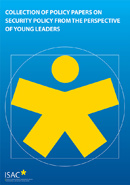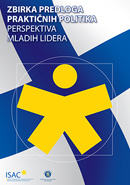Author(s): Gavrilo Nikolić,Mihajlo Tošić,Sonja Mirković / Language(s): Serbian
Publication Year: 0
Suočena sa posledicama devastiranja diplomatskog aparata nakon raspada jugoslovenske države, ali i odsustva njegove blagovremene reforme, Srbija je propustila priliku za uspostavljanje i definisanje dugoročne spoljnopolitičke strategije, što je direktno uticalo na njen trenutni položaj u međunarodnim odnosima. Postoje indicije da je bilo pokušaja za njenim definisanjem, kao i reformom celokupnog diplomatskog aparata, naročito u periodu demokratske tranzicije, ali čini se, bez adekvatne političke podrške. ovom radu biće iznete preporuke vezane za reformu postojećeg diplomatskog aparata, sa posebnim naglaskom na obrazovanje diplomatskog kadra. Diplomatija, kao sfera društvenog delovanja, pre svega je usmerena ka mirnom rešavanju političkih konflikata, te se postojanje visoko kvalifikovanog i obrazovanog diplomatskog kadra, kao svojevrsnog “oruđa” nameće kao prioritet svake države. Stoga je neophodno pristupiti temeljnoj i kompletnoj reformi postojećeg diplomatskog aparata, odnosno prevashodno obrazovanja, kao njegovog suštinskog dela. Primenjeno na slučaj Srbije, to bi pre svega podrazumevalo uvođenje veće transparentnosti procesa prijema u diplomatsku službu uz kontrolu kriterijuma selekcije, usklađivanje kurseva diplomatskog obrazovanja sa nacionalnom spoljnopolitičkom strategijom, te proširivanje kapaciteta za eventualno stručno usavršavanje diplomata u različitim oblastima. Nakon pažljive analize i opsežnih istraživanja, uzimajući primer, pre svega, austrijskog i hrvatskog sistema diplomatskog obrazovanja, sa posebnim akcentom na one karakteristike koje njihove sisteme izdvajaju od ostalih, u daljem tekstu biće reči o načinu na koji Srbija može da doprinese reformi i profesionalizaciji sopstvenog diplomatskog aparata, kao neophodnog uslova za stvaranje stabilne, moderne i uspešne diplomatske službe.
More...




